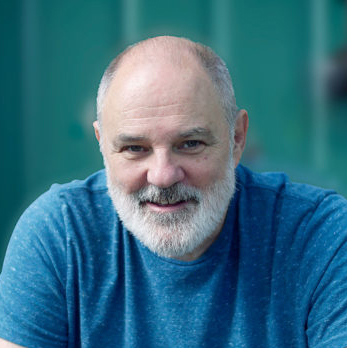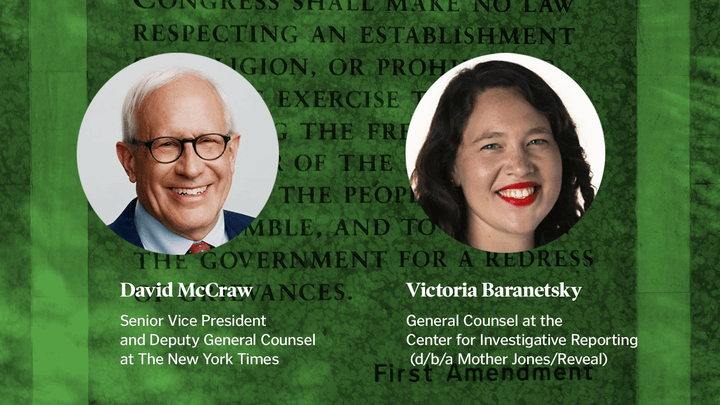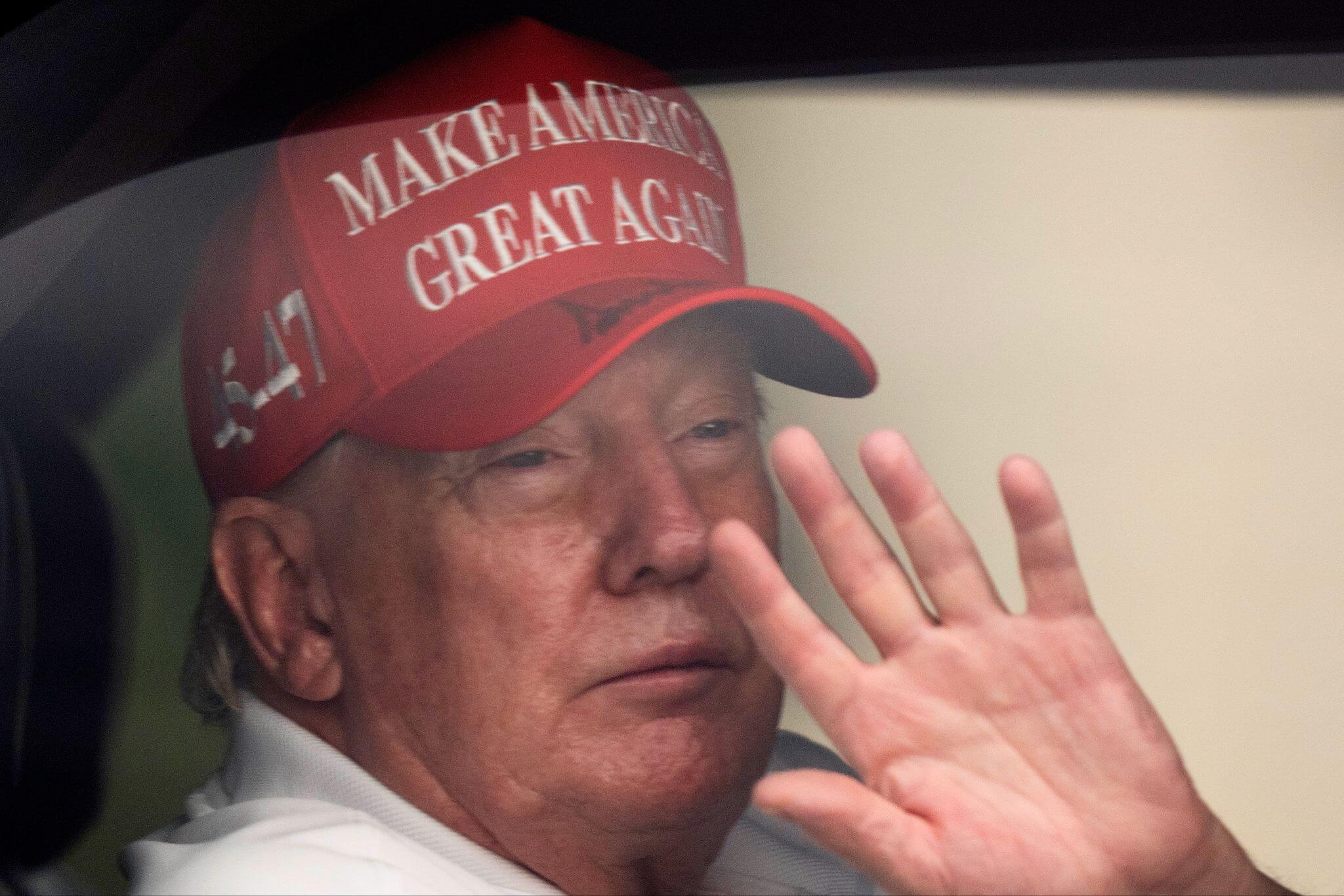Dan Barry and I share common ground — we cut our journalistic teeth at the same two New England newspapers, the Journal Inquirer, a feisty tabloid in Manchester, Conn., and the Providence Journal, a paper with a record of investigative reporting and narrative writing which offers regular evidence that civic clarity and literary grace, those polar opposites of modern newswriting, can coexist.
Sadly for me, we occupied those newsrooms at different times, so it wasn’t until last fall, when Dan came to Poynter to teach in a seminar, that I finally got to meet him. Learning from, and laughing with, him that week, I began to entertain a wishful thought: we’d been separated at birth, a pair of Irish-American twins, altar boys, newspaper reporters, husbands, fathers, who kept passing each other on the high seas of life. (Dan took an eclipsing step on his career path that demolished my spliced nativity theory. He went to work at The New York Times, where he writes the “About New York” column.)
Happily, I’ve been able to catch up on Dan’s life by reading his new book, “Pull Me Up,” a lyrical, unflinching memoir about his family, his work, and his ups and downs, which include the Pulitzer Prize and a battle with cancer.
I wanted to know the story behind his book and the lessons other journalists can learn from his experience writing it. My questions and his responses appear below. This interview was conducted via e-mail.
Chip Scanlan: Why did you write a memoir?
Dan Barry: The short answer is that I thought I had some stories to share. The long answer is a little messier. In the summer of 1999, when I was covering the Giuliani administration as the City Hall bureau chief for The New York Times, I learned that I had cancer: a tumor in my trachea. Over the next several months, I underwent a lot of in-patient chemotherapy treatment at Memorial Sloan Kettering Cancer Center in New York. I was a 41-year-old nonsmoker, with a wife and a 21-month-old girl. I was also extremely scared, and extremely angry.
Spending those nights in the cancer ward, away from my family and attached to an IV pole, I naturally thought about death, and about all the stories of my life that would never be told should I die. It’s not as though I had a treasure trove of larger-than-life adventures, or a collection of Great Journalistic Moments; I never arm-wrestled with the Pope, or got pie-eyed with Mickey Mantle. My stories were ordinary, but they were mine:
A goofy kid grows up on Long Island. Goes to parochial school. Gets beat up a lot. Listens to father’s tales about growing up poor in New York City, and to mother’s yarns about her childhood in rural Ireland. Joins them in some of their unusual hobbies, like searching the skies for UFOs. Aches for them as they struggle with health and financial problems. Grows up. Becomes a newspaper reporter. Marries. Adopts a baby girl. Wants to live.
After a rigorous chemo-and-radiation regimen, I received a clean CT scan. A few months later, I decided to take full advantage of this second chance, and started to write down the stories of my life. They resulted in this memoir, “Pull Me Up.”
What was the most important lesson you’ve taken away from the experience?
I suppose it is how readers respond to stories that are not black-and-white, but gray with complexity, because that is how life is.
For example, some people who write about their parents beatify them; others castigate them. My parents were human beings, which means that they, like all of us, had flaws. They smoked too much and drank too much and fought too much, but they also loved their children and worked very hard to keep our family afloat.
My father suffered from cluster migraine headaches that had him moaning in pain at night for nearly 20 years. He lost a decent job on Wall Street because of these attacks, but never gave up. He worked for a while as the manager of a Jack in the Box fast-food place, then ran a check-cashing store. My mother worked as a clerk in a lousy factory, the kind of place where you had 10 minutes for a cigarette break in the morning, and don’t you dare take 11 minutes. Then she came home, did all the chores, cooked the dinner, and cared for four children and a wounded husband.
There is a general assumption that the stories of working-class people like my parents are too familiar and not at all exotic, and so their stories often go untold. But if you slow their stories down -– if you consider the romantic secrets and travails and habits of, say, a 45-year union between two people –- you will find the surprising, the heroic, and the extraordinary.
So when I describe my mother, at 61, dying of cancer on the family’s living room couch, I hope that the reader feels the preciousness of life. When the pain medication fills her with the sensation of falling, prompting her to call out, “Pull me up,” I hope that the reader senses that precious life slipping way. And when she is buried beneath one of the thousands of identical white tombstones that fill Calverton National Cemetery, I hope the reader feels the loss of a distinct individual.
What do people want to know about the book?
That “Pull Me Up” is not a book about Long Island, or a book about Irish America, or about cancer, or about journalism. All of these are elements in a larger story that follows perhaps the most familiar plotline in literature: A man goes on a journey.
I think that just about anyone will recognize the people and places in my book. For example, I happened to have grown up on Long Island in the 1960s and 1970s, but the stories I tell — of trying to understand my parents, or of losing myself in baseball, Mad magazines, and Abbott and Costello movies — could just as easily have taken place in suburban Chicago, or suburban Los Angeles.
In my book I write about being a 17-year-old boy who has no idea what he wants to do, or even who he is. I describe making a pact with God as I work out my concerns by shooting a deflated basketball at a broken hoop on the side of my house. Here’s the deal, I tell God. If I hit 10 consecutive foul shots, then my future will become clear. Or, my father’s headaches will go away. Or, the family’s financial difficulties will lift. Or, I’ll have girlfriend some day.
I thought that I was surely the only one to engage in such folly – until a reader from Ireland told me that he essentially did the same thing in Dublin. He’d repeatedly kick a deflated soccer ball at a shed in his backyard, saying to God, Now if I hit the shed door square in the center, then…
My book is about the journey we all take. We all have passions; mine is journalism. We all have obstacles; mine is cancer. And we all need to remember the joy of the moment. It was in writing this book that I remembered.
What do reporters want to know about it?
I think that most memoirs by journalists focus on their brushes with history, whether it’s arm-wrestling with that Pope or covering a war. They rarely focus on the ordinary rhythms of daily newspaper reporting, which takes up the lion’s share of journalism in towns and small cities across the country. Maybe there is something wrong with me — there is, of course — but I’ve never aspired to being a White House correspondent. I’ve always been drawn to more mundane settings, where a murder or a political fight can take on greater meaning — become larger, in a way, than the place in which it occurs.
I try to reflect that in the book, as well as the great joy and privilege I feel in being a newspaper reporter. I recall walking into the newsroom of my first newspaper, the Journal Inquirer in Manchester, Conn., and becoming intoxicated by the smell of ink emanating from the pressroom on the other side of a cinderblock wall. There was something about the aroma that seemed so immediate, so now, so dedicated to recording the moment, and I couldn’t get enough of it.

Beyond that, there are these weird little journalistic epiphanies that I’ve had. For example, a colleague of mine at the Journal Inquirer was murdered in her Hartford apartment in late 1987, and I was assigned to report on her death. I had none of the skills necessary to solve a homicide, but still I set out like a mad fool to “find the killer.” I didn’t, of course. No one has been convicted. And I learned that the ending to some stories is that they have none.
Another moment came when TWA Flight 800 went down off the coast of eastern Long Island in 1996. I was settling down to enjoy a beer after a long day of work when my editor called and ordered me to go out there: there’d been a plane crash of some kind. I was furious — so furious that as I drove east, switching back and forth between radio news stations to try and figure out where to go, I didn’t HEAR what the newscasters were saying — no survivors likely; 230 people probably dead. When those words finally sunk in, I was mortified. There, alone, in my car, mortified.
I had forgotten what it was that I do. I had forgotten the privilege and the responsibility. And I think that other reporters will identify with that kind of anecdote, rather than with anything related to the Jayson Blair matter. In fact, I like to think that my book celebrates the pursuit of the story, and the honor of that pursuit, and in that celebration rejects the cynicism and disrespect that Blair showed for our profession.
Something else that reporters might want to know is that the book is reported out. I have childhood memories -– of searching for UFOs with my family, of being hazed in specific ways on my bus ride to high school -– but I had to make sure that time had not changed the truth of my memories. So I did what any reporter would do. I conducted a lot of interviews, and recovered a lot of documents. For example, when I ran the UFO anecdotes past my siblings, they confirmed my accounts and reminded me of other specific details (Don’t you remember the linzer tarts we ate the night we looked for UFOs at the Wanaque Reservoir? Don’t you remember going to Plainview with Dad, because some man had a UFO story to tell?).
I followed the same process with people I know from my high school days, my college days, my days at other newspapers, my days in the hospital. I even called up the former mayor of a small town I covered 20 years ago. Back then we talked every day, maybe twice a day, for nearly two years. Now, she couldn’t quite place my name. I suppose there’s a lesson in that as well.
…the book is reported out. I have childhood memories … but I had to make sure that time had not changed the truth of my memories. So I did what any reporter would do. I conducted a lot of interviews, and recovered a lot of documents.What was the biggest surprise about writing the book?
That it got published.
Here’s another surprise: that I managed to get over that bog Irish inner voice asking me who the hell do I think I am, writing a memoir is it, at 46 and what have I done that’s so important for all the world to know. The answer, of course, is nothing in particular.
But that bog Irish voice never left me as I wrote, forcing me time and again to try and nudge the stories up to a level of telling that would make them stand alone AND have universal engagement. So that was a surprise, and I thank my Irish ghosts.
What have you not been asked on your big tour that you’d like to answer?
Why are there no quotes in the book?
The reason is that, where I come from, quotation marks are sacred. And there is no way that I could recall conversations from five years ago verbatim, much less conversations from 30 years ago. So I share conversations, as best as I can recall them, without quotes, which has a side benefit of lending a novelistic feel to the narrative.
What have you been asked that you’d rather not?
How’s your book selling?
I don’t really know the answer, and I’m afraid to find out. I’ve stopped regularly checking the Amazon ranking (which is not a true measure) because of how I feel afterward, no matter what. If it’s low, I feel like a fraud; if it’s high, I feel like a failure. And I’m quite capable of feeling like a fraud and a failure on my own.
How has writing a memoir affected your reporting and writing?
Initially, I chafed at the idea that what I was writing was a memoir. It was, of course, but I thought that at 46, and with no Nobel Peace Prize under my belt, it was a bit presumptuous to write a “memoir.” But once I got over that psychological hump, I found that writing the memoir recharged my batteries.
For a couple of years I wrote without any certainty that the manuscript would ever get published. Nevertheless, I looked forward to getting up early every morning, before work, and writing stories that had no specific deadline or urgency. I found myself being more daring with the language, and less concerned with having a nut graph. I took more attempts at humor, more attempts at describing people and places with unexpected images. I used voices in the first person, second person, and third person. Writing free-style, I threw images down on the page as fast as they came to me, then took my time separating the good writing from the bad writing. It was liberating; it was fun.
After 20 years as a daily newspaper reporter, I needed the reminder to notice the little things. I swear, I hadn’t thought about the wonder of fireflies since I was a boy. Then, during the treatment for my illness, I remembered fireflies. And while writing this book, I thought of the childhood habit of catching fireflies in glass jars and watching their luminescence for a moment or two. And it struck me: that’s what we do as writers. We try to capture the firefly’s glow before it fades from memory.






